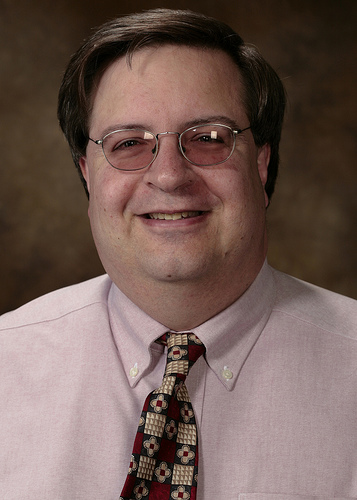FAYETTEVILLE, Ark. – A study of the “money primary” suggests that changes in the fundraising environment have important implications for the 2008 presidential election and beyond.
“After 20 years, small donors seem to be back,” says Andrew J. Dowdle, a University of Arkansas political scientist. Why? His short answer: “It’s the Internet.”
Dowdle and Randall E. Adkins of the University of Nebraska-Omaha examined fundraising patterns for presidential candidates from 1980 to 2000, focusing on the money primary, the period before the start of the primary and caucus season in which candidates compete to raise funds from partisan donors.
On one hand, it remains true that candidates with high poll numbers and a willingness to spend money on fundraising will be relatively successful in the money primary.
On the other hand, changes in election laws and tools have important implications for future money primaries. The researchers identified three key changes: the collapse of the voluntary federal matching funds system, the rise of the Internet as a fundraising tool and the emergence of fundraising networks to tap non-traditional donors.
“One of the things that we forget – because it seems new to us again with Dean and Obama – is the importance of small funders,” Dowdle said. “If you look, for example at Carter’s 1976 campaign and Reagan’s 1980 campaign, you see campaigns that are very much built off of small contributions of $500 or below.”
At one time, acceptance of matching funds was an automatic choice for almost all candidates. The Bipartisan Campaign Reform Act of 2002 changed that picture. The act created “super-donors” who could contribute at increasing individual limits – from $1,000 in 2000 to $2,300 in 2008. The change allowed campaigns to raise so much more funding from individual donors that federal matching funds were no longer attractive.
By March 2004, the Kerry campaign had raised only $6 million in contributions of $200 or less, which was only 20 percent of his total funds raised. In contrast, more than two-thirds of his total contributions came from donors who contributed $1,000 or more. To put it in perspective, the researchers noted that the $6 million he raised from small donations was equal to the amount he personally loaned to his campaign just prior to the Iowa caucuses.
Internet use is changing the emphasis on the big donors, as indicated by the importance of small contributions to the campaigns of Howard Dean and Barack Obama. For example, Obama had raised $76 million by the end of October 2007. Most of the money came online, and more than 25 percent was in small donations.
The Internet facilitates the formation of networks to involve non-traditional donors. Raising campaign funds over the Internet also eliminates the typical fundraising lag time and makes donations immediately available to the campaign.
“I was a skeptic about the effectiveness of the Internet,” Dowdle said. “In the past, the money from small contributions typically has been too little, too late. Now you could almost manage a campaign off of these small Internet-driven contributions. They are a major source of revenue.”
Dowdle is an assistant professor of political science in the J. William Fulbright College of Arts and Sciences at the University of Arkansas. The researchers’ findings were published in a recent issue of The American Review of Politics.
Contacts
,
